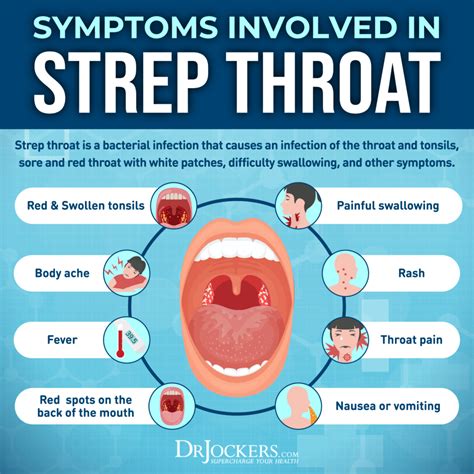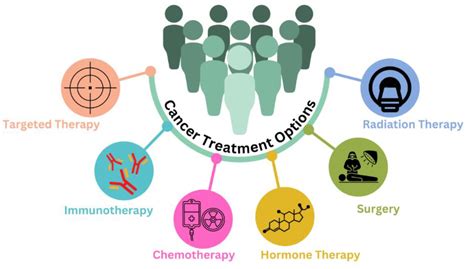Intro
Identify Strep Throat Symptoms in Adults, including sore throat, fever, and swollen tonsils, and learn about diagnosis, treatment, and prevention of this bacterial infection, also known as Streptococcal Pharyngitis.
Strep throat, also known as streptococcal pharyngitis, is a common and highly contagious infection that affects the throat and tonsils. It is caused by the bacterium Group A Streptococcus (GAS). While strep throat can affect people of all ages, it is most commonly seen in children and adolescents. However, adults can also contract the infection, and it is essential to recognize the symptoms and seek medical attention if necessary.
The symptoms of strep throat in adults can vary in severity and may be similar to those experienced by children. Some common symptoms include sore throat, swollen and tender lymph nodes in the neck, fever, headache, and fatigue. In addition to these symptoms, adults may also experience a loss of appetite, nausea, and vomiting. It is crucial to note that some adults may not exhibit all of these symptoms, and in some cases, the infection may be asymptomatic.
Strep throat is highly contagious and can be spread through close contact with an infected person, such as sharing food or drinks, kissing, or coming into contact with respiratory secretions. The infection can also be spread through touching surfaces that have come into contact with the bacteria. Adults who work in close proximity to others, such as in offices or schools, are more likely to contract the infection. Furthermore, adults with weakened immune systems, such as those with chronic illnesses or taking immunosuppressive medications, are more susceptible to developing complications from strep throat.
Understanding Strep Throat Symptoms in Adults

Strep throat symptoms in adults can be divided into two categories: mild and severe. Mild symptoms may include a sore throat, mild fever, and swollen lymph nodes. Severe symptoms, on the other hand, may include high fever, severe sore throat, and difficulty swallowing. In some cases, adults may experience additional symptoms, such as a rash, joint pain, or swollen and tender joints.
It is essential to seek medical attention if symptoms persist or worsen over time. A healthcare provider can diagnose strep throat using a physical examination, medical history, and laboratory tests, such as a throat culture or rapid strep test. If left untreated, strep throat can lead to complications, such as kidney inflammation, rheumatic fever, and abscesses.
Diagnosing Strep Throat in Adults
A diagnosis of strep throat is typically made based on a combination of physical examination, medical history, and laboratory tests. During a physical examination, a healthcare provider will examine the throat and tonsils for signs of inflammation and infection. The provider will also check for swollen and tender lymph nodes in the neck and listen to the heart and lungs to rule out any other conditions.Laboratory tests, such as a throat culture or rapid strep test, can confirm the presence of the GAS bacterium. A throat culture involves taking a swab of the throat and sending it to a laboratory for analysis. The results of a throat culture can take several days to return. A rapid strep test, on the other hand, can provide results in a matter of minutes.
Treatment Options for Strep Throat in Adults

Treatment for strep throat in adults typically involves a course of antibiotics, such as penicillin or amoxicillin. The antibiotics work by killing the GAS bacterium and helping to alleviate symptoms. It is essential to complete the full course of antibiotics, even if symptoms improve before finishing the medication.
In addition to antibiotics, there are several home remedies that can help alleviate symptoms and promote recovery. These may include getting plenty of rest, staying hydrated, using a humidifier to add moisture to the air, and gargling with salt water to reduce throat inflammation.
Home Remedies for Strep Throat in Adults
There are several home remedies that can help alleviate symptoms and promote recovery from strep throat. Some of these remedies include:- Getting plenty of rest to help the body fight off the infection
- Staying hydrated by drinking plenty of fluids, such as water, tea, and soup
- Using a humidifier to add moisture to the air and reduce throat irritation
- Gargling with salt water to reduce throat inflammation and kill bacteria
- Taking over-the-counter pain medications, such as acetaminophen or ibuprofen, to help alleviate pain and reduce fever
- Eating a balanced diet that includes plenty of fruits, vegetables, and whole grains
It is essential to note that while these home remedies can help alleviate symptoms, they should not be used as a replacement for medical treatment. If symptoms persist or worsen over time, it is crucial to seek medical attention to prevent complications.
Complications of Strep Throat in Adults

If left untreated, strep throat can lead to several complications, including kidney inflammation, rheumatic fever, and abscesses. Kidney inflammation, also known as poststreptococcal glomerulonephritis, is a rare but serious complication that can occur if the GAS bacterium spreads to the kidneys.
Rheumatic fever is another potential complication of strep throat. It is a rare but serious condition that can occur if the GAS bacterium triggers an abnormal immune response. Rheumatic fever can lead to inflammation and scarring of the heart valves, which can increase the risk of heart disease and stroke.
Abscesses are another potential complication of strep throat. An abscess is a pocket of pus that can form in the throat or tonsils. If left untreated, an abscess can rupture and spread the infection to other parts of the body.
Preventing Strep Throat in Adults
There are several ways to prevent strep throat in adults, including practicing good hygiene, avoiding close contact with infected individuals, and getting plenty of rest. Practicing good hygiene involves washing hands frequently, especially after coming into contact with someone who is sick.Avoiding close contact with infected individuals can also help prevent the spread of strep throat. This includes avoiding sharing food or drinks, kissing, or coming into contact with respiratory secretions.
Getting plenty of rest and staying hydrated can also help prevent strep throat by keeping the immune system strong. A healthy diet that includes plenty of fruits, vegetables, and whole grains can also help boost the immune system and prevent illness.
Conclusion and Next Steps

In conclusion, strep throat is a common and highly contagious infection that can affect adults. It is essential to recognize the symptoms and seek medical attention if necessary. Treatment typically involves a course of antibiotics, and home remedies can help alleviate symptoms and promote recovery.
If you suspect that you or a loved one has strep throat, it is crucial to seek medical attention to prevent complications. A healthcare provider can diagnose the infection and provide guidance on treatment and prevention.
We encourage you to share your thoughts and experiences with strep throat in the comments below. Have you or a loved one ever had strep throat? What were your symptoms, and how did you treat the infection? Your comments can help others who are going through a similar experience.
What are the symptoms of strep throat in adults?
+The symptoms of strep throat in adults may include sore throat, swollen and tender lymph nodes, fever, headache, and fatigue. In some cases, adults may also experience a loss of appetite, nausea, and vomiting.
How is strep throat diagnosed in adults?
+A diagnosis of strep throat is typically made based on a combination of physical examination, medical history, and laboratory tests, such as a throat culture or rapid strep test.
What are the treatment options for strep throat in adults?
+Treatment for strep throat in adults typically involves a course of antibiotics, such as penicillin or amoxicillin. Home remedies, such as getting plenty of rest, staying hydrated, and using a humidifier, can also help alleviate symptoms and promote recovery.
Can strep throat be prevented in adults?
+Yes, strep throat can be prevented in adults by practicing good hygiene, avoiding close contact with infected individuals, and getting plenty of rest. A healthy diet that includes plenty of fruits, vegetables, and whole grains can also help boost the immune system and prevent illness.
What are the complications of strep throat in adults?
+If left untreated, strep throat can lead to several complications, including kidney inflammation, rheumatic fever, and abscesses. It is essential to seek medical attention if symptoms persist or worsen over time to prevent these complications.
